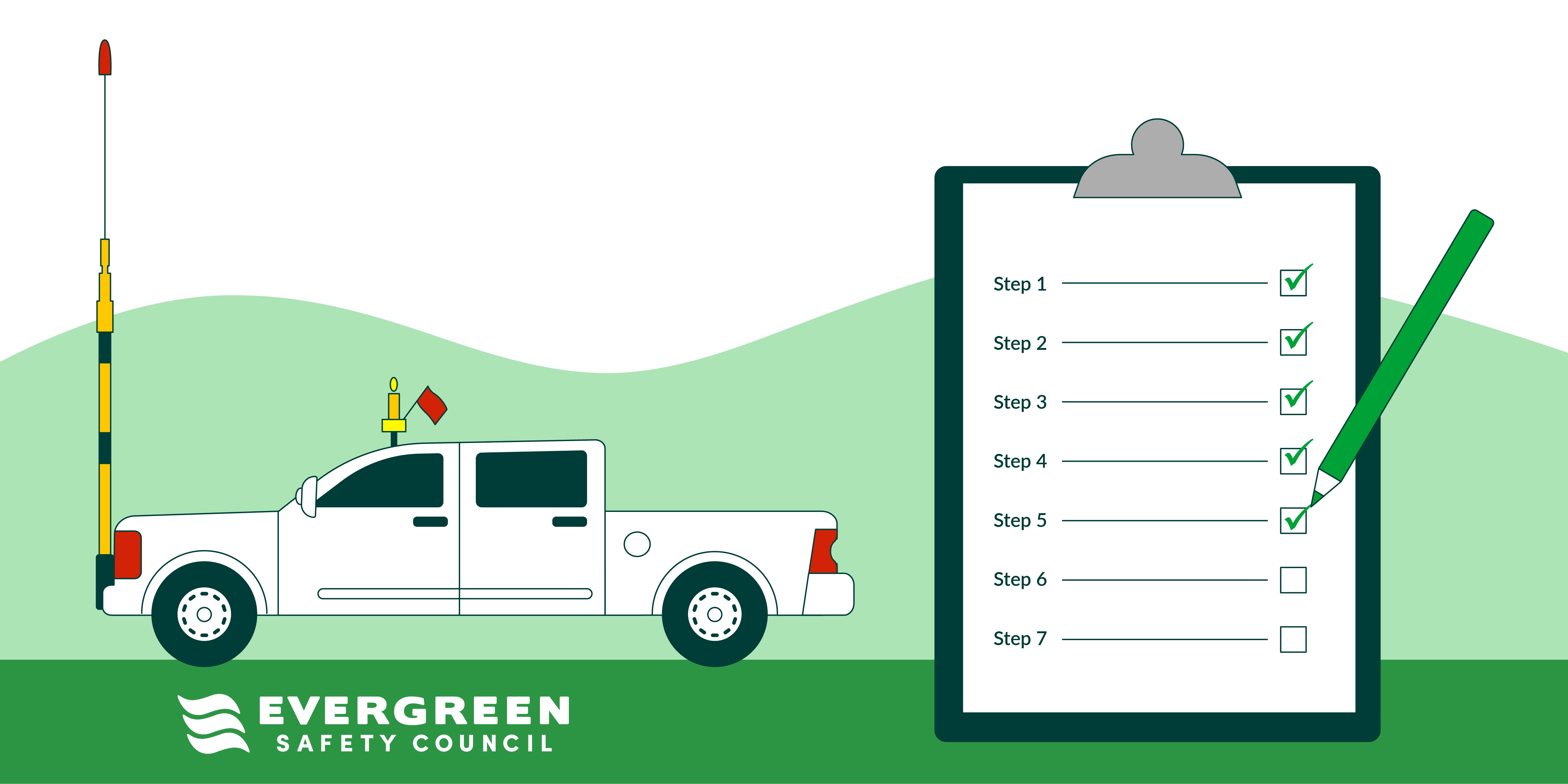Published on

This article was contributed by Jose Emond of Accelerate Pilot Car Service.
I see a lot of people asking about becoming pilot drivers, so I thought I’d share the journey I took to get here.
This path isn’t easy, and I’ve picked up some valuable lessons along the way. Here’s what worked for me—and what new pilots should be prepared for in this industry.
The first thing I did was work under someone with experience in the business. (Note that some states require you to be certified in order to ride along with another PEVO.) Working with an experienced pilot taught me the basics: radio etiquette, safety protocols, and what drivers expect from a pilot. The hours were long, and it required patience, but paying these dues was essential. I worked for a year, learning as much as I could before stepping out on my own.
Once I had experience, I focused on training and certifications. I researched everything available and started with the Washington State PEVO certification, followed by the WITPAC course. I also got a Flaggers certification to handle traffic control if necessary. Knowledge and certification are non-negotiable in this industry—they lay the foundation for a safe and professional career.
In this field, 90% of work comes from other pilots, not clients, so building a network is key. Maintaining professionalism with pilots, drivers, and clients can make or break your reputation. From experience, there’s no problem two pilots can’t resolve if they talk like adults. I’ve even worked multiple times with a pilot I had a very public disagreement with because we handled it professionally afterward. Respect and good relationships open doors and keep work flowing.
Financial management isn’t just smart—it’s essential. Many pilots fail because they skip this step. Beyond saving for downtime, keep track of expenses, save receipts, and separate personal and business finances. Setting aside funds for taxes and keeping everything organized can save a lot of stress. Taking finances seriously is the best way to avoid surprise expenses that can sink new pilots.
Safety is everything—not only for you but for the entire transport team. I focus on regular vehicle inspections, daily safety checklists, and continuous learning to stay updated on safety standards. This job isn’t just about getting from Point A to Point B; it’s about getting everyone there safely.
Piloting is often a “hurry up and wait” game. Loads get delayed, routes and permits change, and sometimes adjustments are needed last minute. Staying adaptable and positive makes all the difference. Be ready for surprises and don’t let small setbacks throw you off balance.
I’ve had my share of setbacks, like losing out on a $5,000 profit due to equipment failure. Experiences like this taught me the importance of thorough vehicle inspections and planning for unexpected costs. Setbacks are part of the journey, but they’re valuable learning opportunities that make you a better pilot.
This career isn’t for everyone, but if you’re dedicated, adaptable, and eager to learn, piloting can be incredibly rewarding. It’s not just about hitting the road; it’s about preparation, professionalism, and persistence. If you’re serious about becoming a pilot driver, follow these steps and set realistic expectations—you’ll be better prepared for the challenges and rewards that come with it.
Check out Accelerate Pilot Car Service's other posts on Facebook.
Share this article

Evergreen Safety Council is proud to be endorsed by the American Association of Safety Councils and Specialized Carriers and Rigging Association.
We offer online, in-person, and private group training for each of our programs.
Choose an option below to get help with a class or a certification.
Need a new certification card? Fill out this form to request a replacement.
Download your materials, get help with your tech, or find out what you need to complete before the day of class.
Minimize downtime, disruption, and expense by having one of our experienced instructors train your staff, at your facility.
View our growing library of informative safety articles.
You have questions, we have answers. View commonly asked questions here.
Access your account page on our registration system or training portal.
Since 1932, we’ve been empowering people to achieve their potential by training them to stay safe on the road and on the job.